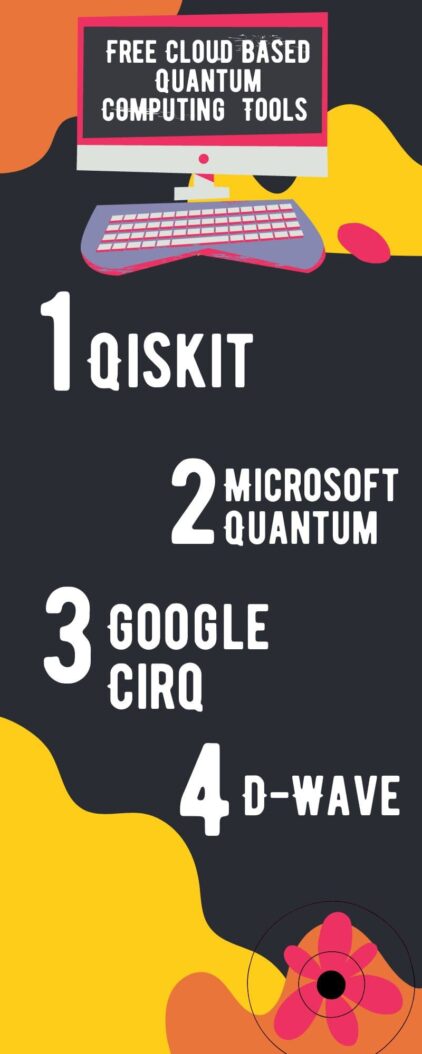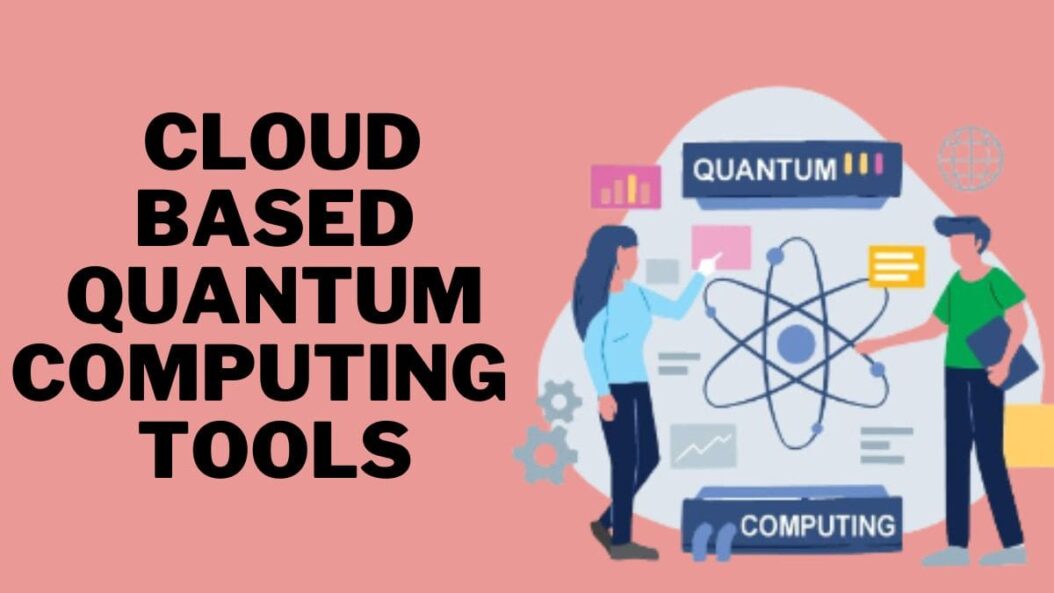Quantum computing is an exciting and rapidly advancing field that leverages the power of quantum mechanics to solve complex problems beyond the reach of classical computers. While fully fault tolerant, universal quantum computers may still be years away, in 2024 there are already powerful cloud-based quantum computing services and tools available to explore. These online quantum platforms and simulators make this cutting edge technology accessible to students, researchers, developers and more without requiring advanced physics degrees.
Accessing Quantum Devices in the Cloud
In the early days of quantum computing, access was limited to a few labs running isolated superconducting boxes housing just a handful of qubits. Today in 2024, cloud services have democratized access to real quantum processors with 10-20 qubits as well enterprise quantum simulators leveraging classical resources. Researchers can run experiments on these remote, high availability quantum computers from anywhere in the world. As quantum hardware improves, cloud-based services will play a key role in providing broad access.
Top Cloud Platforms for Quantum Exploration
Here are some of the top cloud quantum computing services widely used today in 2024 to run algorithms, experiments and simulations:
IBM Quantum Experience
One of the first on the scene, IBM now offers premium access to quantum processors with up to 127 qubits via the cloud. The free tier still provides options for running circuits on smaller systems plus simulation tools.
Amazon Braket
The AWS entry into quantum computing services for exploring hybrid algorithms and designing quantum circuits. Integrates systems from D-Wave, IonQ and Rigetti.
Microsoft Azure Quantum
Microsoft’s Azure platform offers QUANTUM programming languages, libraries, emulators and on demand access to quantum hardware provided by IonQ physical and Honeywell trapped ion systems.
Google Quantum AI
Google Cloud provides a robust set of quantum computing resources including Quantum AI which leverages AI and quantum tools to solve optimization problems unsolvable by other methods.
Early Quantum Applications
While universal error corrected quantum computers may still be a decade or more away, today’s noisy intermediate scale quantum (NISQ) devices are advancing rapidly and can demonstrate “Quantum Advantage” the ability to run certain focused applications exponentially faster than classical systems. Here are some promising near term application areas:
Quantum Simulation
One of the most promising applications today is using quantum computers to simulate quantum systems like molecules, advanced materials or quantum many body physics problems. Early results have been encouraging.
Optimization
Many logistics, scheduling and planning problems can be formulated using quadratic unconstrained binary optimization (QUBO) models that quantum annealing systems like D-Wave can optimize extremely rapidly.
Machine Learning
Quantum machine learning remains early stage but quantum neural networks and quantum support vector machines show potential for pattern recognition and classification tasks. Hybrid algorithms are an active research area leveraging strengths of both quantum and classical systems.
Chemistry / Drug Discovery
Modeling complex molecular systems has long been an ideal but intractable application for quantum advantage. Quantum chemistiry simulations and quantum enhanced machine learning models are beginning to show accuracy and performance gains over classical approaches.
Free Tools to Get Started with Quantum
For developers and researchers ready to start experimenting with quantum, many free sowtware and cloud-based services are available today including:

Qiskit from IBM
A popular open source Python framework with quantum circuit compilers, simulators, optimizers and integrations to access real quantum hardware.
Amazon Braket SDK
Programmatic access to Amazon Braket quantum computing hardware and simulators from AWS through Python SDK. Develop, test & run quantum algorithms.
Microsoft Quantum Development Kit
Q# programming language, libraries, emulators and Visual Studio integration provide a full application stack for quantum algorithm design using Azure Quantum services.
Google Cirq
Python library and quantum circuit simulator/compiler to develop and test quantum algorithms before running on Google’s quantum processors.
D-Wave Ocean Tools
The full suite of Ocean tools help developers access the quantum processing power of D-Wave systems, including Leap quantum cloud service for hybrid quantum classical computing.
Rigetti Grove
Rigetti’s platform for developing quantum applications combining access to quantum computers via Grove SDK plus hybrid algorithms combining classical and quantum resources.
Atos Quantum Learning Machine
A powerful quantum software simulator from Atos that mimics up to 41 qubits to test and verify quantum circuits, programs and algorithms before real hardware.
Xanadu PennyLane
Open-source Python quantum machine learning library optimized for quantum computing hardware from Xanadu and partners like Quantinuum and Rigetti.
Strangeworks Platform
Strangeworks offers access to quantum simulators and emulators through Github and web-based interfaces to explore quantum computing concepts through interactive tools and tutorials.
These free cloud services and frameworks represented just a glimpse into the rapidly expanding quantum computing ecosystem enabling broad access and innovation built on intermediate quantum hardware available today in 2024. While still evolving quickly most forecasts indicate commercially relevant applications demonstrating quantum advantage are just around the corner.
Free cloud based quantum machine learning tools list
Here are 20 free cloud-based quantum computing applications and tools:
- IBM Quantum Experience
- Amazon Braket
- Microsoft Quantum Development Kit
- D-Wave Leap
- Rigetti Quantum Cloud Services
- IonQ Quantum Application Platform
- Quantum Computing Playground
- Qiskit
- Quantum in the Cloud by Strangeworks
- Horizon Quantum by Qu & Co
- Pasqal Quantum Playground
- QSim
- Silicon Quantum Computing Cloud Access
- Quantum Computing by Cambridge Quantum
- Quantinuum H1 Cloud Platform
- OQC Quantum IDE
- Zapata Quantum Orquestra
- Xanadu Cloud Quantum Computing
- Amazon Quantum Solutions Lab
- QuEra Computing Platform
- Phasecraft Quantum Computing Platform
- Quantum OCaml Platform
- QuTech Quantum Inspire
- Rahko Quantum Cloud Platform
- Quantastica Quantum Software Stack
- Classiq Quantum Platform
- Quantware Quantum Computing Simulators
Conclusion
In summary, quantum computing is transitioning from isolated lab experiments a decade ago to real world cloud-based services available today to run algorithms, models and simulations showing the early promise of this next-gen technology. While quantum is not positioned to replace classical systems, hybrid algorithms leveraging the strengths of both will drive initial breakthrough applications over the next few years in areas like quantum chemistry, optimization and machine learning. Access services provided by IBM, Amazon, Microsoft, D-Wave and Google enable students, developers and enterprises to start exploring real quantum processors today using Python SDKs, Q# languages and simulators to prepare for the future. These hands on tools and platforms highlighted how in 2024 quantum is already advancing from science fiction to practical advantage.
FAQs
What is the benefit of cloud based quantum computing?
Cloud based services democratize access to real quantum processors globally, allowing more students, researchers and enterprises to explore quantum without large in-house investments.
What companies offer access to quantum computers in the cloud?
IBM, Amazon, Microsoft, Google and D-Wave offer various levels of access to quantum hardware and simulation tools through cloud services.
What quantum languages or frameworks are easiest to learn?
Python libraries like Qiskit, Cirq and PennyLane as well as Microsoft’s Q# language aim to make quantum application development as accessible as possible to classical developers.
How many qubits are available today in the cloud?
Processors between 10 qubits from IBM up to 127 qubit quantum systems are now accessible via various cloud quantum platforms with numbers increasing regularly.
Can quantum machine learning algorithms run in the cloud today?
Yes services like AWS Braket and Google Quantum AI are actively researching and enabling quantum ML tools leveraging cloud quantum hardware tailored for ML tasks.
- Gaming Guild Scholarships Explained: Complete Guide to Earning Money Through Play-to-Earn Games in 2025 - July 6, 2025
- DeFi Aggregator Platforms Explained: Complete Guide to Decentralized Finance Optimization - July 6, 2025
- NFT Rental Marketplaces Explained: Your Guide to Digital Asset Lending in 2025 - July 6, 2025

